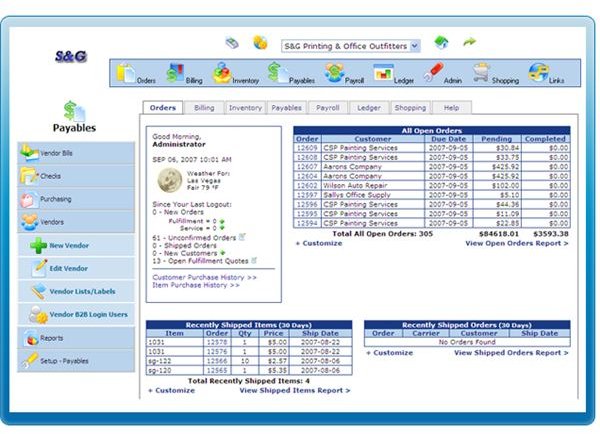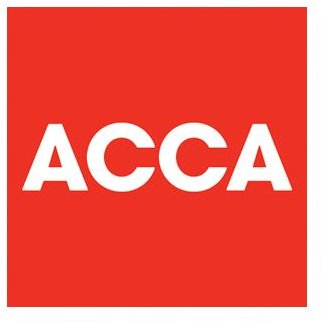Accounting Technician Position: Descriptions of Qualifications and Accounting Functions
A Description of the Accounting Technician Position
The accounting profession continues to expand in terms of skills specialization, and one of the most recent additions is the accounting technician job. A closer look into the accounting technician position reveals descriptions that require a higher level of mathematical competency, compared to that required for accounting clerks. This denotes that the tasks involved are less on the mechanical aspects of administrative accounting and bookkeeping work.
Accordingly, the demand for the creation and development of this position stemmed from the small business industries’ need for competent accounting professionals, at costs less than those charged by board-accredited Certified Public Accountants (CPA). It’s a known fact that the average number of CPA board passers is only about a quarter of the entire exam-takers for a specific testing event. Owing to the time, money, and effort they have devoted to achieve their CPA stature, board passers are paid higher salary rates.
In the actual workplace, most of the accounting leg-work has always been performed by the non-CPAs. It was also opined that the non-CPAs who perform accounting tasks that demand problem-solving and analytical skills should be ranked higher than those who perform purely clerical accounting work. Many agreed to this proposition, as it later on spawned another accounting specialization —the accounting technician job.
Defining the Job Description for an Accounting Technician Job

Most accounting technicians are expected to perform and complete the entire accounting cycle at micro-levels. In which case, this accounting professional should:
-
Be able to work without supervision.
-
Understand the transactions that link other types of industries to that of his employer’s. This pertains to banking, investing, and financing transactions and facilities as well as the task of accounting and reconciling funds deposited, invested, or received. These may include government grants and/or NGO-assisted projects.
-
Prepare payroll and remit the monthly, quarterly, and annual federal and statutory tax requirements.
-
Maintain the general ledger books by performing the related bookkeeping tasks.
-
Perform year-end closing and adjusting procedures as a prelude to financial statement preparations.
-
Budget preparations and analysis of its variances against actual data.
-
Prepare financial statements and ensure their timely submission to regulatory bodies.
-
Other functions that may be assigned from time to time may include but are not limited to:
- Analyzing and testing the impact of latest technological developments that could affect his employer’s business.
- Evaluating the effects of the latest government regulations and, if necessary, presenting cost-reduction solutions compliant with the GAAP rules and standards.
- Conducting studies and evaluating products or incentives being offered as cost-efficient alternatives as a means to gain an edge over the employer’s business competitors.
In larger companies, accounting technicians perform these functions by specializing on a particular account and coordinating with other accounting technicians that provide support to the unit head and the accounting manager. As an example, one may be assigned to handle the accounting of the collections section with a job title of Accounting Technician II.
In this case, the technician’s main concern is the accounts receivable account, and the bookkeeping and analytical work performed on the subsidiary ledgers, aging reports, provisions for bad debts allowance, and recommendations for write-offs, as well as the preparation of payment reminders and collection letters.
Educational, Experiential, and Accreditation Requirements for the Accounting Technician Job

-
An Associate’s degree in accounting or an undergraduate BS accounting education, or their equivalent, which includes a high school diploma and basic computer skills.
-
Training certifications or professional certifications from the Association of Accounting Technicians (AAT) or the Association of Certified Chartered Accountants (ACCA); an accreditation from the latter qualifies the accounting technician for internal job opportunities.
-
At least one year of actual accounting work experience. However, applicants for higher levels of accounting technician jobs may be required to have at least one year of actual work experience as a Certified Accounting Technician (CAT).
In becoming a well-rounded accounting technician through years of actual experience plus an accreditation from the ATA or ACCA, most CATs are able to find additional income opportunities by rendering freelance or part-time accounting services for small single proprietorship businesses. However, their qualifications as accounting technicians do not include the license to certify the financial statements submitted to federal or state regulatory agencies.
Reference Materials and Image Credit Section:
References:
- IFAC Developing Nations Committee–Good Practice Guide: The Education,Training, and Development of Accounting Technicians –https://web.ifac.org/publications/developing-nations-committee/good-practice-guidance-20
- Account Technician Job Description –https://www.jobs.nih.gov/positions/admin/accounttech.htm
Image Credits:
- [Bundesarchiv Bild 183-G0111-0002-001](https://commons.wikimedia.org/wiki/File:Bundesarchiv_Bild_183-G0111-0002-001,_Gardelegen ,_Kreisbuchungsstation_der_LPGs.jpg)
- Npss
- Logo acca
